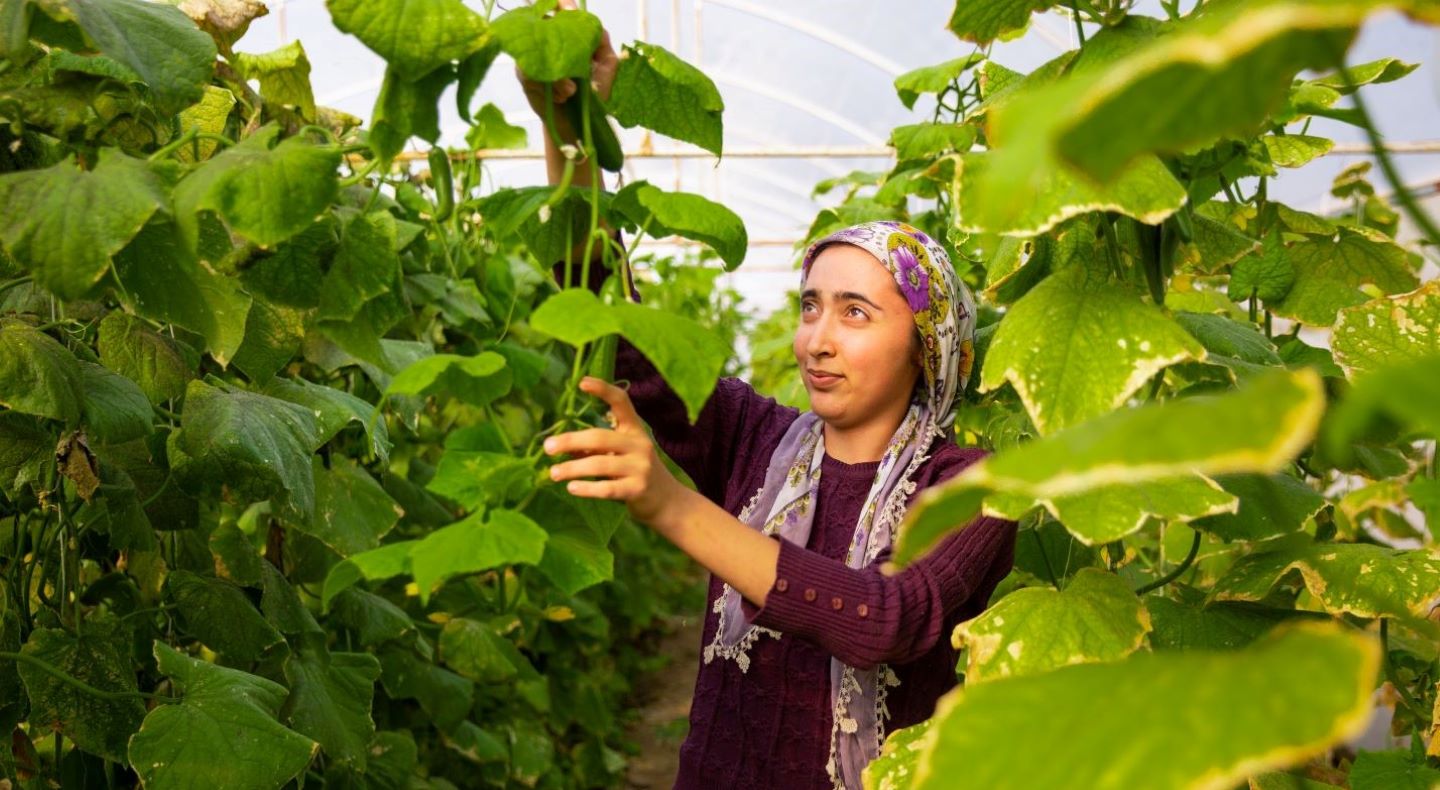Thriving in Türkiye: meet the women lifting themselves out of poverty
IFAD Asset Request Portlet
Asset Publisher
Thriving in Türkiye: meet the women lifting themselves out of poverty
Estimated reading time: 3 minutes
Too often, environmental degradation and poverty go hand in hand. With few or no alternatives, poor rural communities often overuse resources to provide for their families. As a result, over 1.3 billion people are reliant on degrading agricultural land with limited options for other income streams, making them more vulnerable to the negative impacts of environmental degradation and climate change.
With poverty falling disproportionately on women, we must make significant changes if we’re to end poverty in all its forms by 2030—starting with empowering rural women.
Despite being major contributors to agriculture and rural economies, women face numerous challenges that men do not. They have less access to resources and services, including land, finance, training, inputs and equipment and they are also overburdened with domestic chores and caring tasks.
That's why the IFAD-funded Murat River Watershed Rehabilitation Project (MRWRP) in Türkiye focused on women.
From modern stoves to brand new greenhouses, the MRWRP gave almost 24,000 women the agricultural tools, energy-saving equipment and training to lift themselves out of poverty and thrive.
Warm home, warm heart

In some parts of eastern Türkiye, winter temperatures can drop to minus 20, so indoor heating is vital. Some wood-burning stoves, however, are not only time-consuming but can contribute to deforestation.
To lessen the workload and curb land degradation, MRWRP insulated more than 6,400 homes, and installed solar panels and more efficient, energy-saving stoves.
Before the house was insulated, Dilan Oğur used to burn three to four tons of wood a year. “Now it has dropped by half,” she says. The project is saving about 22,000 tons of wood each year.
Moreover, the new stove is safer to manage and allows Dilan to save on heating, while the solar panels heat the water, meaning fewer trips to collect firewood, giving her more time for other activities.
Today, winters are warmer for Dilan and the forest is at less risk of deforestation.
The power of the greenhouse
Greenhouses give farmers greater control over the growing environment. In the uplands, where altitude and cold weather impacts productivity, these structures enable small-scale farmers to sustainably produce and harvest vegetables all year round and increase their incomes.
For women, whose duties often extend from farm to household, a functioning greenhouse near the home means they spend less time commuting, leaving space for other activities.
Besile Bucin and her family were one of 200 small-scale farmers in the area who received a brand-new greenhouse equipped with a drip irrigation system and training in how to use it. Today, her beloved greenhouse is a multicoloured patchwork of tomatoes, peppers, eggplants and cucumbers.
“In the past we only produced enough vegetables for our own consumption,” she explains. The greenhouse allows her to produce more, most of which is now sold on the market for around US$ 1,400 a year, a welcome addition to her husband’s earnings.
The greenhouse has been lifechanging for Besile—so much so, that she has been talking about setting up a second one and expanding her business.
Spectacular strawberries

When Salihe Çelik lost her husband, she was left to raise their five children and head the household alone.
Her farm’s remote location made it difficult for Salihe to access the market so she struggled to provide for her children. “We did not make money with what we produced and could not make a profit,” she recalls.
Then Salihe and her community were introduced to an exciting, but unorthodox plan – strawberry production, an unfamiliar practice in the uplands. Fifty farmers took a leap of faith and embarked on strawberry production – Salihe was one of them.
“At first, I was sceptical,” says Salihe, who had never seen a strawberry orchard in her town before. Then the MRWRP team set up the orchard and Salihe received training and technical support. Her income increased by $US 600 a year.
Like her, other women in the community are now making an income by selling strawberry jams and lifting themselves out of poverty through hard work and dedication.
Going forward, the Turkish government plans to build on these achievements and launch a second phase of the MRWRP, with a focus on gender and climate adaptation.
Publication date: 10 October 2023